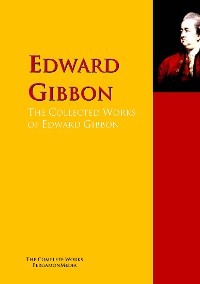 полная версия
полная версияPrivate Letters of Edward Gibbon (1753-1794) Volume 2 (of 2)
OLD ACQUAINTANCES AT LAUSANNE.
As I told Lady S., I am afraid of being too rash and hasty in expressing my satisfaction; but I must again repeat, that appearances are extremely favourable. I am sensible that general praise conveys no distinct ideas, but it is very difficult to enter into particulars where the individuals are unknown, or indifferent to our correspondent. You have forgotten the old Generation, and in twenty years a new one is grown up. Death has swept many from the World, and chance or choice has brought many to this place. If you enquire after your old acquaintance Catherine Crousaz, you must be told, that she is solitary, uggly, blind, and universally forgotten. Your later flame, and our common Goddess, the Eliza,70 passed a month at the Inn. The greatest part of the time either in fit or taking the air on horseback. She came to consult Tissot, and was acquainted with Cerjat, but she appears to have made no conquests, and no fountain has been dedicated to her memory.*
And now to business. By this time those who would give me nothing else have nobly rewarded my merit with the Chiltern Hundreds. I retire without a sigh from the Senate, and am only impatient to hear that you have received the sum, which your modesty was content to take for my seat. Sir Andrew71 is an honourable man, yet I am satisfied that you have not neglected any of the necessary precautions. It will be advisable to have the odd hundred in Gosling's shop and to pay the thousand to Messrs. Darrel, Winchester Street, who will vest it for me in the three per cent. We must take advantage of this stupendous fall of the Stocks, which amazes and frightens many poor souls here who apprehend that poor old England is on the brink of ruin. But this same circumstance is equally hostile to the sale of Lenborough, and though £200 or 300 a year and some part of my tranquillity depend on being released from the claws of my Mortgagee, yet I am much afraid that in the present state of things an equal purchaser will not easily be found. But your native vigour excited by friendship will remove mountains and perform impossibilities. My salvation would be more assured if I had half as much faith in any body else.
*With regard to meaner cares, these are two, which you can and will undertake. 1. As I have not renounced my Country, I should be glad to hear of your Parliamentary squabbles, which may be done with small trouble and expence. After an interesting debate, Miss Firth or My lady in due time may cut the speeches from Woodfall. You will write or dictate any curious anecdote, and the whole, inclosed in a letter, may be dispatched to Lausanne. 2. A set of Wedgewood China, which we talked of in London, and which would be most acceptable here. As you have a sort of a taste, I leave to your own choice the colour and the pattern; but as I have the inclination and means to live very handsomely here, I desire that the size and number of things may be adequate to a plentiful table.
If you see Lord North, assure him of my gratitude; had he been a more successful friend, I should now be drudging at the board of Customs, or vexed with business in the amiable society of *the Duke of M[anchester].* To Lord Loughborough present a more affectionate sentiment; I am satisfied with his intention to serve me, if I had not been in such a fidget. I am sure you will not fail, while you are in town, to visit and comfort poor Aunt Kitty. I wrote to her on my first arrival, and she may be assured that I will not neglect her.* Any occasional hints from Bath will be wellcome, but nothing from hence must ever transpire. *To My lady I say nothing; we have now our private Correspondence, into which the eye of an husband should not be permitted to intrude. I am really satisfied with the success of the Pamphlet;72 not only because I have a sneaking kindness for the author, but as it shows me that plain sense, full information, and warm spirit, are still acceptable to the World. You talk of Lausanne as a place of retirement; yet from the situation and freedom of the Pays de Vaud, all nations, and all extraordinary characters, are astonished to meet each other. The Abbé Raynal, the grand Gibbon, and Mercier,73 author of the Tableau de Paris, have been in the same room. The other day, the Prince and Princess de Ligne,74 the Duke and Dutchess d'Ursel, &c. came from Brussels on purpose (literally true) to act a comedy at d'Hermanches's, in the Country. He was dying, and could not appear; but we had Comedy, ball, and supper. The event seems to have revived him; for that great man is fallen from his ancient glory, and his nearest relations refuse to see him. I told you of poor Catherine's deplorable state; but Madame de Mesery, at the age of sixty-nine, is still handsome. Adieu.*
487.
To Lord Sheffield
Lausanne, December 20th, 1783.*I have received both your Epistles; and as any excuse will serve a man who is at the same time very busy and very idle, I patiently expected the second, before I entertained any thoughts of answering the first.*
SALE OF LENBOROUGH.
And so poor Lenborough is at length sold; poor indeed I may call, for I must confess that I am most woefully disappointed in the price. Without going back to the Golden Age in which we looked down with disdain on the round twenty, you may remember that even this summer we scarcely allowed our most timid expectations to sink below seventeen, and this sum for which it is now sold falls £1400 short of that amount, without deducting the promised gratuity to Christie.
You might indeed reckon on my impatience to be delivered from a heavy burden both of fortune and of mind which I have often deplored with so much energy, but that burthen was much alleviated by my rational retreat from a scene of tumult and expence, and I always understood that we should take the chance of the winter and of the rise of stocks before we tryed the decisive and almost irrevocable measure of an auction. However the blow is struck, and I have already reconciled my mind to this new loss. I should have been afraid of writing thus much to Hugonin, but your nerves are more firmly strung, and through these expressions of disappointment, you discern, that instead of being displeased with your conduct, however inadequate to my hopes, I feel myself inexpressibly obliged to your pure fervent and persevering friendship. You will watch over the conclusion of this business, and whatever steps on my side may be necessary shall be diligently executed as soon as you send me the proper papers and instruction. When the money is paid (in February) you will leave the residue, a wretched fragment, in the hands of the Goslings on my account. I have not absolutely determined how I shall employ it. Something must be done in the way of annuity, and the French funds which are very fashionable in this country are wonderfully tempting to a poor man by the high interest, but I am aware of their slippery foundation, and you may be assured that I shall do nothing of that kind without full and mature and even cautious investigation. For the same reason, instead of paying the money to Darrel, I could wish that the £1100 or £1000 for Lymington (for we must not haggle about trifles) may likewise slumber for a little while in the shop in Fleet Street. Yet I should not be sorry to hear that the direction comes too late and that they are already more actively employed.
Sure I have been particularly unfortunate in my connections of business, for in good truth, Winton, Lovegrove, and Sir H. Burrard75 are more than should fall to the share of one man.
PRIDE IN FOX'S FAME.
Yet the last mentioned beast is no fool, and when that affectionate kinsman has squeezed the Minister to the utmost, he will be satisfied with all that he can get, and will not suffer his farm to lye fallow without being of any value either to landlord or tenant. *I therefore conclude, on every principle of common sense, that, before this moment, his own interest and that of the Government, stimulated by your active zeal, have already expelled me from the House, to which, without regret, I bid an everlasting farewell. The agreeable hour of five o'Clock in the morning, at which you commonly retire, does not tend to revive my attachment; but if you add the soft hours of your morning committee,76 in the discussion of taxes, customs, frauds, smugglers, &c., I think I should beg to be released and quietly sent to the Gallies, as a place of leisure and freedom. Yet I do not depart from my general principles of toleration; some animals are made to live in the water, others on the Earth, many in the air, and some, as it is now believed, even in fire. Your present hurry of Parliament I perfectly understand; when opposition make the attack —
– Horæ
Momento cita mors venit, aut victoria læta.
But when the Minister brings forward strong and decisive measure, he at length prevails; but his progress is retarded at every step, and in every stage of the bill, by a pertinacious, though unsuccessful, minority. I am not sorry to hear of the splendour of Fox; I am proud, in a foreign Country, of his fame and abilities, and our little animosities are extinguished by my retreat from the English Stage. With regard to the substance of the business, I scarcely know what to think: the vices of the Company,77 both in their persons and their constitution, were manifold and manifest; the danger was imminent, and such an Empire, with thirty millions of subjects, was not to be lost for trifles. Yet, on the other hand, the faith of Charters, the rights of property! I hesitate and tremble. Such an innovation would at least require that the remedy should be as certain as the evil, and the proprietors may perhaps insinuate, that they were as competent Guardians of their own affairs, as either *George North or L. Lewisham.78* Their acting without a salary seems childish, and their not being removable by the Crown is a strange and dangerous precedent.
But enough of politics, which I now begin to view through a thin, cold, distant cloud, yet not without a reasonable degree of curiosity and patriotism. From the papers (especially when you add an occasional slice of the Chronicle) I shall be amply informed of facts and debates; from you I expect the causes rather than the events, the true springs of action, and those interesting anecdotes which seldom ascend the garret of a Fleet-Street editor.
LORD NORTH'S INSIGNIFICANCE.
You say that many friends (alias acquaintance) have expressed curiosity and concern; I should not wish to be immediately forgot. That others (you once mentioned Gerard Hamilton) condemn Government for suffering the departure of a man who might have done them some credit and some service, perhaps as much as Antony Storer himself. To you, in the confidence of friendship, and without either pride or resentment, I will fairly own that I am somewhat of Gerard's opinion; and if I did not compare it with the rest of his character, I should be astonished that Lord N[orth] suffered me to depart, without even a civil answer to my letter. Were I capable of hating a man, whom it is not easy to hate, I should find myself most amply revenged by the insignificance of the creature in this mighty revolution of India, his own peculiar department. But the happy Souls in paradise are susceptible only of love and pity, and though Lausanne is not a paradise, more especially in Winter, I do assure you, in sober prose, that it has hitherto fulfilled, and even surpassed, my warmest expectation. Yet I often cast a look toward Sheffield-place, where you now repose, if you can repose, during the Christmas recess.
Embrace My Lady, the young Baroness, and the gentle Louisa, and insinuate to your silent Consort, that separate letters require separate answers. Had I an air balloon, the great topic of modern Conversation, I would call upon you till the meeting of parliament. Vale.*
488.
To his Stepmother. 79
Lausanne, December 27th, 1783.Dear Madam,
Were we strangers to each other, I might amuse myself with deducing the causes of my silence; the long expectation of your answer and the propriety of taking a clear view of the ground on which I stood before I could transmit a just and satisfactory account of my situation. But it will be better to acknowledge that the old man, my ancient and habitual enemy, touched me with his wand, and that I am just awakening from the enchanted slumber. My silence however may be fairly interpreted as an evidence of content. Indeed, my Dear Madam, I am happy, with as few exceptions as the condition of human Nature will allow, and among the first of these exceptions I reckon the interval of time and space which separates me from Bath.
Since I formed and executed this plan of retiring into Switzerland I have not once repented, I have not felt a single moment of disappointment, and my only regret is the having so long neglected to obey the dictates of my reason; a more early obedience would have saved me some years of dependance, of anxiety, and of indiscretion. I have always valued far above the external gifts of rank and fortune two qualities for which I stand indebted to the indulgence of Nature, a strong and constant passion for letters, and a propensity to view and to enjoy every object in the most favourable light. The first has composed the daily happiness of my life and ensured the perpetual enjoyment of the most pleasing labours; the success of my works has given me a pure and extensive, perhaps a permanent reputation, and if the more substantial rewards have too easily slipped through my hands, I must ascribe their loss to the obstinancy with which I struggled to support a style of life to which the remains of my fortune were no longer adequate.
My propensity to be happy has been exercised on the most unfavourable materials; you have commonly seen a smile on my conversation and my letters, and as you never distrusted the sincerity of my professions you must have been surprized at the success of my endeavours. Yet what could be more adverse to my character than the life which for some years past I have led in London. With the warmest love of independence I have stooped the slave of Ministers. Without talents, or at least without resolution for a public life, I have consumed days and nights a silent spectator of noisy and factious debates. Conscious that true happiness is founded on œconomy, the disorderly state of my affairs has never allowed me to measure my income and my expence, and I have never dared to cast my eyes on the disbursment of the past or the supplies of the future year. How different is the prospect which I now enjoy. I find myself in a state of perfect independence and real affluence, and if I continue to enjoy a tolerable state of health, I cannot easily discover what event is capable of disturbing my tranquillity.
Among the ingredients of happiness you will agree with me in giving the preference to a sincere and sensible friend; and though you are not acquainted with half his merit, you will believe that Deyverdun answers that description. Perhaps two persons so perfectly fitted for each other were never created by Nature and education. Our studies, occupations, and reflexions have been sufficiently various to ensure a constant fund of entertainment; the lights and shades of our respective characters are happily blended; freedom and confidence are the basis of our union, and a friendship of thirty years has taught us to enjoy and to support each other. You have often read and heard the descriptions of this delightful Country, the banks of the lake of Geneva, and indeed it surpasses all description. A stranger is struck with surprize and admiration, and it is endeared to me by the remembrance of my youth and the lively attachment which I have always retained for the place and the people. Our autumn has been beautiful, and the winter has not hitherto been severe, but the season of rural enjoyments is for some time suspended and our comforts are confined to the fireside. M. Deyverdun's house is spacious and convenient, and his garden, which spreads over a various and extensive spot, unites every beauty and advantage both of town and country. But into this paradise we are not yet introduced; the family to whom he had lent or let the larger part of the house have started some difficulties about the time of their removal, and till the month of March or April we are obliged to content ourselves with a convenient ready furnished lodging. When to this disappointment I add that my boxes of books which were sent through France still loiter on the road, you will confess that my felicity in the approaching year is more likely to encrease than to diminish.
DAILY LIFE AT LAUSANNE.
With regard to the daily enjoyments of life, which rolls away in a quiet uniform tenor, they are made to be felt rather than to be related. I rise before eight, and our mornings are commonly invisible to each other. At two (an hour somewhat too early) we dine, one, two, or three agreably very often enliven our board, which is served with decent elegance. From four to between six and seven we read some amusing book, play at chess, retire to our rooms, look into the Coffee house, or make visits. The assemblies are numerous, and I play my three rubbers at shilling or half-crown whist with tolerable pleasure. They end between nine and ten, and a bit of bread and cheese, with some friendly converse, sends us to bed about eleven. This sober plan is indeed interrupted by too frequent suppers, which I want resolution to refuse, though I behave with exemplary temperance. Instead of lolling in a coach I walk the streets at all hours wrapped in a fur Cloak – the exercise is wholesome, and in my life I never enjoyed more perfect health and spirits. May you be able to say as much! If vanity and Deyverdun do not deceive me, I am already a general favourite, and as likings or dislikes are commonly mutual, I am pleased with the manners of the place, and the worthy and amiable characters of many individuals of both sexes.
Believe me, My dear Madam, I never cast a look on the politics or the amusements of London. The mob of political connections or casual acquaintance are unworthy of the regret of a rational mind. But in the midst of a very pleasant life and society I am not insensible of my separation from yourself, the Sheffields, and two or three real friends. If their zeal should succeed in procuring me any adequate office which I could accept with propriety and exercise without disgust, if Government should find any situation in which I could do them service and myself credit, I would quit (perhaps with a sigh) this agreable retreat, and obey without hesitation the calls of friendship, of honour, and of my Country.
489.
To Lord Sheffield
Lausanne, January 24th, 1784.*Within two or three days after your last gracious Epistle, your Complaints were silenced, and your enquiries were satisfied, by an ample dispatch of four pages, which overflowed the inside of the cover, and in which I exposed my opinions of things in general, public as well as private, as they existed in my mind, in my state of ignorance and error, about the eighteenth or twentieth of last month. Within a week after that date I epistolised, in the same rich and copious strain, the two venerable females of Newman-street and the Belvidere,80 whose murmur must now be changed into songs of gratitude and applause. My correspondence with the holy Matron of Northamptonshire81 has been less lively and loquacious. You have not forgotten the Atheist's vindication of himself from the foul calumnies of pretended Christians; within a fortnight after his arrival at Lausanne, he communicated the joyful event to Mrs. G. She answered per return of post, both letters at the same time, and in very dutiful language, almost excusing her advice, which was intended for my spiritual, as well as temporal, good, and assuring me that nobody should be able to injure me with her. Unless the Saint is an hypocrite, possible enough, such an expression must convey a favourable and important meaning: at all events, it is worth giving ourselves some trouble about her, without indulging any sanguine expectations of inheritance.
DELIGHT IN LORD SHEFFIELD'S LETTERS.
So much for my females. With regard to my male Correspondents, you are the only one to whom I have given any signs of my existence, though I have formed many a generous resolution. Yet I am not insensible of the kind and friendly manner in which Lord Loughborough has distinguished me: he could have no inducements of interest, and now that I view the distant picture with an impartial eye, I am convinced that (for a Statesman) he was sincere though not earnest in his wishes to serve me. When you see him, the Paynes, Eden, Crauford, &c., tell them that I am well, happy, and ashamed. On your side, the zeal and diligence of your pen has surprized and delighted me, and your letters, at this interesting moment, are exactly such as I wished them to be – authentic anecdotes, and rational speculations, worthy of a man who acts a part in the great theatre, and who fills a seat, not only in the general Pandæmonium, but in the private council of the princes of the infernal Regions. With regard to the detail of Parliamentary operations, I must repeat my request to you, or rather to Miss Firth, who will now be on the spot, that she will write, not with her pen, but her Scissars, and that, after every debate which deserves to pass the Sea and the Mountains, she will dissect the faithful narrative of Woodfall,82 and send it off by the next post, as an agreeable supplement to the meagre accounts of our weekly papers.
The wonderful revolutions of last month83 have sounded to my ear more like the shifting scenes of a Comedy or Comic Opera, than like the sober events of real and modern history; and the irregularity of our winter posts, which sometimes retarded, and sometimes hastened, the arrival of the dispatches, has encreased the confusion of our ideas. Surely the Lord has blinded the eyes of Pharaoh and of his servants; the obstinacy of the last spring84 was nothing compared to the headstrong and headlong madness of this Winter. I expect with much impatience the first days of your meeting: the purity and integrity of the Coalition will suffer a fiery tryal; but if they are true to themselves and to each other, a Majority of the House of Commons must prevail; the rebellion of the young Gentlemen will be crushed, and the Masters will resume the Government of the School. After the address and answer,85 I have no conception that Parliament can be dissolved during the Session; but if the present Ministry can outlive the storm, I think the death Warrant will infallibly be signed in the summer. Here I blush for my Country, without confessing her shame. Fox acted like a man of Honour, yet surely his union with Pitt affords the only hope of salvation. How miserably are we wasting the season of peace!
THE SALE OF HIS SEAT.
I have written three pages before I come to my own busyness and feelings. In the first place, I most sincerely rejoyce that I left the ship, and swam ashore on a plank; the daily and hourly agitation in which I must have lived would have made me truly miserable, if I had obtained a place during pleasure, Storer's for instance. On the first news of the dissolution, I considered my seat as so totally and irrecoverably gone, that I have been less affected with Sir Harry's obstinacy.* Yet his absolute refusal to treat throws us at least for the present into a very uncomfortable situation, and besides the danger of shipwreck, every day's voyage diminishes the value of the ship and cargo. You say you are schemeless. I can think only of two expedients.
1. You know or can know Sir Andrew Hammond, who is a fair and honourable character. Talk over the business and kinsman fairly with him, and tempt him to exert himself by the lowness of the price. I should consider even five or six hundred pounds as so much saved out of the fire, and a part of that sum would be most deliciously employed in the embellishment of my new habitation.
2. The other scheme is somewhat more delicate, yet I cannot esteem myself as bound to sacrifice my essential interest to that motley crew surnamed a Coalition, nor does this superiority in Parliament depend on the loss of half-a-vote. Perhaps the new Minister would give Sir Harry for his relations those scandalous jobs which our late friends more conscientiously refused, and many a Candidate would purchase their effectual recommendation by giving me the £1000 or £1200. On this occasion remember you are acting for a poor friend; dismiss a little of the spirit of faction and patriotism, and stoop to a prudential line of conduct, which in your own case you might possibly disdain. If you attempt the negociation you will easily find the proper instruments, but I should think James Grenville, the Lord of the Treasury, a safe and convenient channel, and I am persuaded that he would embrace the opportunity of serving his party and obliging me at the same time. In the business of Lenborough you may be active, but I can only be passive to convey a fair Estate, and to receive a miserable pittance of three thousand and some pounds. I hope nothing will happen to perplex the title or to delay the payment, and that the sum will be safely lodged for my account and in Gosling's hands before the end of February.









